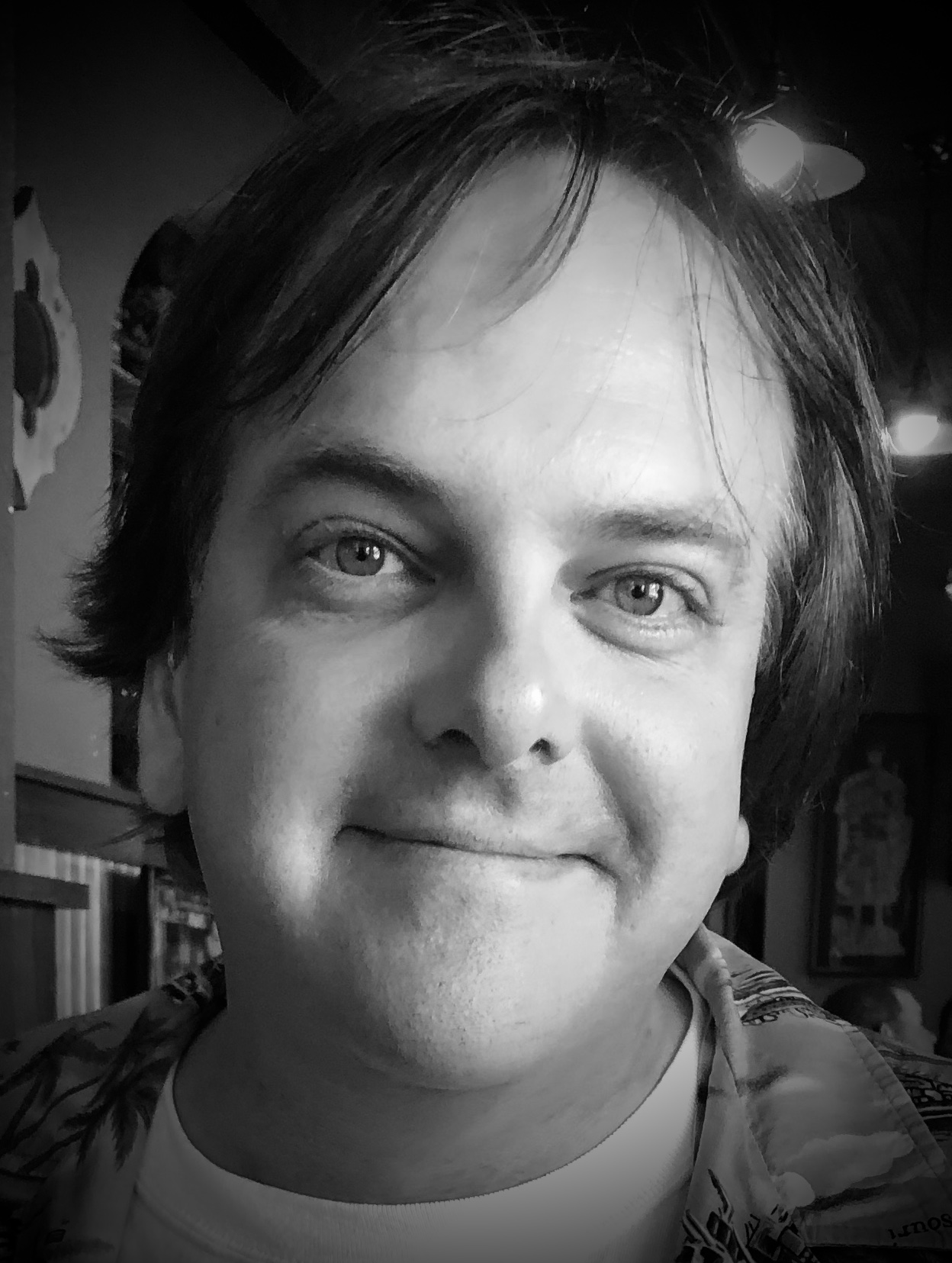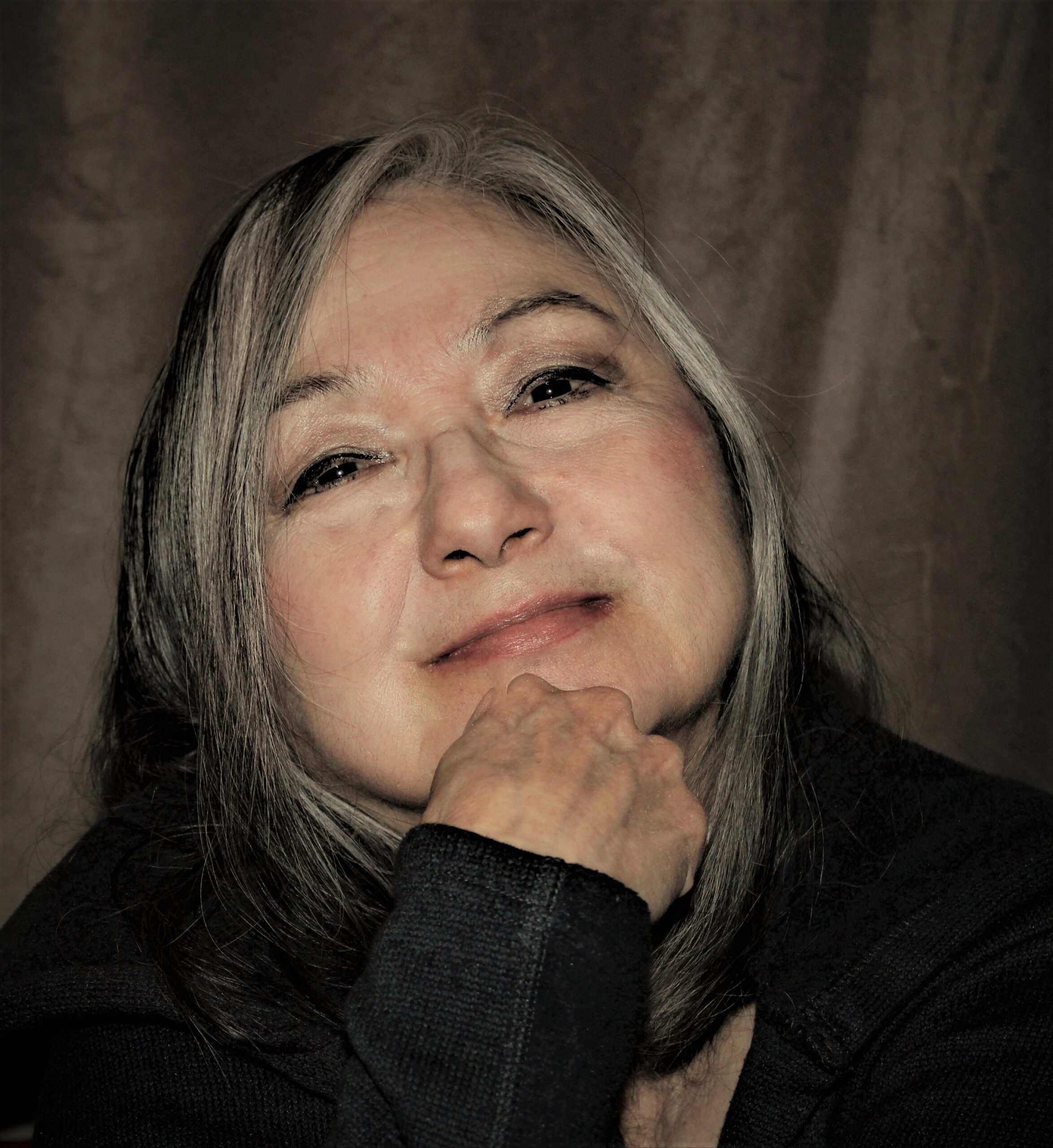Poetry Month Spotlight: Stephen Roger Powers
The Space Where Words Are Formed
A Poetry Month Spotlight on Stephen Roger PowersArtist Statement
I’ve had a progressive hearing loss since I was three years old. All my life, I have had to pay attention to the space where words are formed—the lips, the teeth, the tongue—in order to understand what I am listening to. The pandemic upended all of our lives, but for me and other hearing impaired and deaf people, it also cut off an important avenue of communication, lip reading. I fully support mask wearing to reduce virus transmission because the science is simple and indisputable; however, if I need to understand what someone wearing a mask is saying, I am forced to ask them to pull their mask down while speaking. People are generally nice about this, of course, though a handful insist on shouting through their masks, which is no help. I came to realize too that asking people to pull their masks down while speaking put me at greater risk for infection, which has made me question how necessary it was to understand something in most circumstances. Because it feels so personal, and because it is something that marks me as “different,” I have been reluctant to write seriously about hearing impairment, other than a mention here and there in a poem. I also felt maybe it would come across as gimmicky. Several years ago, I did publish a short story in Bryant Literary Review inspired by the stand-up comedy act I used to do about my hearing impairment. Jokes about hearing impairment are easy because they are a defensive mechanism. Navigating a world hostile to hearing loss is far from easy. Nevertheless, masks forced me to consider my hearing loss in ways I hadn’t before, so a few poems ended up focusing on it. I’ve been a Dolly Parton fan all my life too. Every time I get a new pair of hearing aids, they make the world sound so different that I have to go through an adjustment phase lasting weeks or months as my brain relearns what the world sounds like. I’ve had the pair of digital hearing aids I’m wearing now for three years, and I still haven’t completely gotten used to them. Part of the reason for that is my hearing loss has gotten a little worse lately. Age might have something to do with it. Music, though, sounds very different now. I have to turn it off. My memory is the best place to play songs I know by heart. Tinnitus is common with hearing loss, and what once was white noise in my left ear now often is music.
Hearing Loss Is Difficult To Describe

The Most Common Question People Ask Is How Can I Hear Dolly
Mornings on the porch are best without my hearing aids.
I can still hear traffic, but I’m not sure if it’s traffic I hear
or a memory of what traffic once sounded like.
A cochlear implant might help me more,
but asking you to pull down your mask
so that I can read your lips feels safer for now
than drilling my skull.
I’ve always wondered if maybe I love Dolly
because I’m hearing impaired and hear her differently.
An artist once asked what losing hearing is like,
so I described a realist painting morphing
slowly to impressionism,
then abstract expressionism,
which gives me the most freedom to interpret what sounds are.
He said what if I get a cochlear implant
and hate what Dolly really sounds like?
Mornings on the porch are when I hear Dolly clearest,
as if records were playing in my head.
I’ve heard her songs so many times
they are what I know best, memorized like DNA.
I will still have them when the day comes
I lose the rest of my hearing.
Subtitlefocals
My new hearing aids make me worry about Russia.
They are rechargeable, so how will I hear
once Putin hijacks our power grid?
Words sound so different with these new ones
I still cannot understand you.
Your tongue and teeth are now
rattlesnakes in a popcorn popper.
Why doesn’t someone invent subtitlefocals?
Glasses with speech recognition technology
projecting subtitles below the speaker’s mouth?
My choice of fonts and colors?
At my age it will get worse before it gets better.
I can feel it coming like a whale’s water displacement
rising up from under me, lifting me before I see it.
My tinnitus ear worms are worse too, so clear and distinct a radio
might as well be playing, like the one my grandmother left on
in her kitchen all night to scare burglars.
That’s why I am on the move so much.
I am trying to find silence.
Silence is a destination,
but my tinnitus ear worms are forever
harmonizing with whatever tune
the tires are singing.
About Stephen Roger Powers
Stephen Roger Powers is the author of three poetry collections published by Salmon Poetry and Highway Speed, a collection of short stories. Other work has appeared in 32 Poems, Shenandoah, The Southern Poetry Anthology Volume V: Georgia, Rabbit Ears: TV Poems, and Stone, River, Sky: An Anthology of Georgia Poems. He was an extra in Joyful Noise with Queen Latifah and Dolly Parton, and he can be seen if you know just where to look.
Find him at www.stephenrogerpowers.com and follow on Twitter @dollypoet and Instagram @dollyfan


BMP Celebrates National Poetry Month
As the pandemic has continued into its second year, we at Brain Mill are thinking about spaces & places: how we exist in space, the importance of access, and the particulars of navigating places. We have gathered together in ways that may have been new to us over the last few years, greeting each other in small squares of connectivity, developing relationship and care with virtual check-ins, follows, and voices translated via technology. In our best moments we have learned to listen; in our worst, we have been caught up by all the ways we need to do better and think more deeply about community systems and for whom entry is barred.









Recent Comments